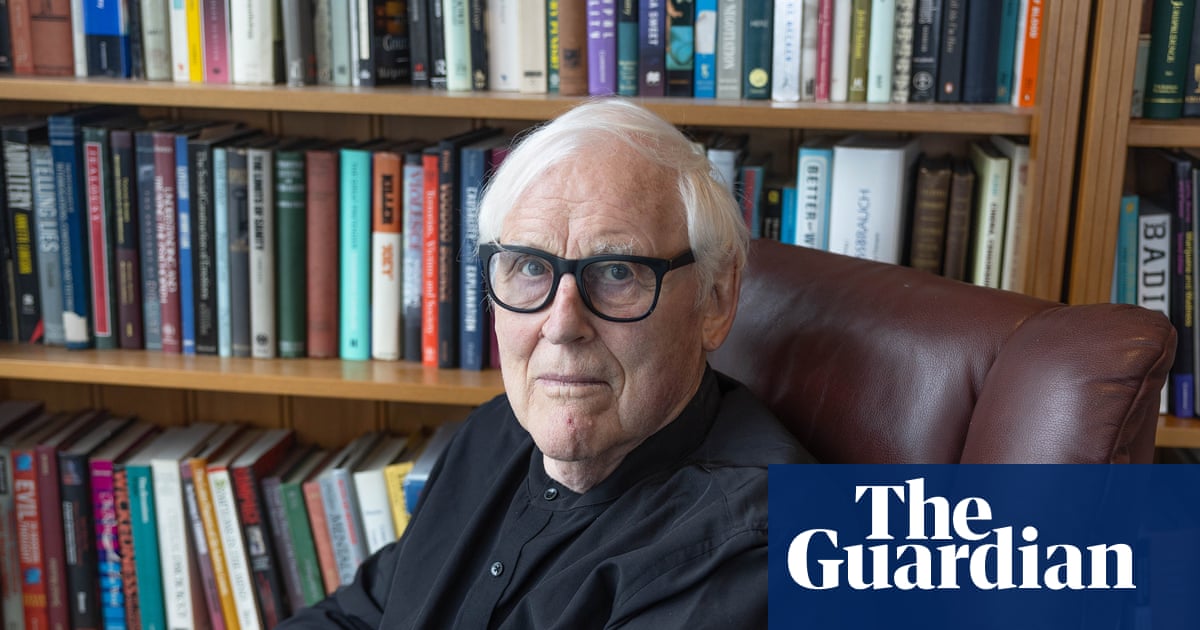Nothing is more insufferable than someone saying “I told you so”; so please forgive me for being insufferable. On 29 September 2023, after a couple of months spent in the US, I published a column that was well summarised in its Guardian headline: “Unless Joe Biden stands aside, the world must prepare for President Trump 2.0”. We can never definitely say “what would have happened if …?”, but there’s a very good chance that had Biden cleared the way for a Democratic primary in autumn 2023 the strongest candidate could have defeated Trump. The entire world would have been spared the disaster now unfolding.
“No use crying over spilt milk,” you may say. Yes, but it’s always worth learning lessons for the future. I’m back in the US now, and a recent poll for the Wall Street Journal found that 63% of voters hold an unfavourable view of the Democratic party. To put it mildly, the Democrats have a way to go.
So what, given all that is happening and everything we now know, are the right lessons? The point of mentioning my old column is not to boast of some special insider insight into Washington high politics; the point is precisely that I had none. It was just obviously crazy to put up a visibly old and frail candidate who would be 86 years old by the end of his second term. For comparison, the leaders of the Soviet Union who we think of as the epitome of decrepit gerontocracy were, at their respective moments of unlamented demise, 75 (Leonid Brezhnev), 69 (Yuri Andropov) and 73 (Konstantin Chernenko).
It required no special knowledge to see this and most Americans already did. By the time I wrote my column, an opinion poll had found that 77% of Americans thought Biden was too old to be president for another four years. It was only the political insiders, the liberal commentariat, the Democratic establishment, who went on agreeing with the president, his family and what was (you couldn’t make this up) actually known informally as the “politburo” of his closest advisers that he was the only man for the job.
In their recent, much noticed book, Original Sin, two leading Washington journalists, CNN’s Jake Tapper and Alex Thompson of Axios, argue that there was, as their subtitle suggests, a cover up. Biden’s family and the politburo tried to hide his precipitate cognitive decline, confining most of his meetings to between 10am and 4pm. Even cabinet members did not see him up close for many months and in-depth media interviews were as rare as a Pride parade in the Vatican.
The authors generously apportion blame to the president, his wife, other family members and his closest advisers, but there’s one set of people they curiously spare: themselves and their fellow Washington insider journalists. Now, I haven’t gone back over all their reporting on CNN and Axios, and there are certainly some pieces that should be cited to defend their journalistic record. But there is no doubt that American political journalists in general, and the liberal commentariat in particular, were slow and late to say what most “ordinary” Americans had long since seen.
Why? The New York Times writer Ezra Klein digs into this in an episode of his excellent podcast. Frankly acknowledging that his own February 2024 call for Biden to stand aside was “late”, Klein explores in conversation with Tapper why most others were even later. The answer seems to be a mix of ingredients: journalistic fear of losing access; the vindictive tribalism of the Democratic establishment; deference to an imperial presidency; fear of Donald Trump; worry about Kamala Harris as the presumptive alternative candidate.
Fear of losing access is a professional disease of journalism. “You felt like you were destroying all of your relationships with the White House all at once,” says Klein, recalling his February 2024 demarche. “Yes, not just with the White House but the Democratic party,” adds Tapper. My own September 2023 notebook sums up a private conversation with a Washington-based columnist: “Yes, Biden should stand aside. He [the columnist] can’t say it.” (My note continues: “Jill Biden could, but she likes it.”)
I know, also from other sources, just how threatening the Democratic establishment could be when trying to close down any questioning of Biden’s fitness to serve a second term. Even in the critical articles that did appear in US media there was a kind of residual deference to the presidency, almost as though they were asking a king to abdicate rather than just another politician to stand aside. Partly this stems from the 237-year-old US constitutional device of rolling your prime minister and monarch into one. In Britain, we confine our residual deference to the monarch while the prime minister gets roasted every Wednesday at prime minister’s questions in the House of Commons. Someone in Biden’s 2023 state of dotage wouldn’t have survived two weeks in Westminster.
Then there’s the fact that people were already panicking about Trump and it was somehow thought, especially after Democratic successes in the 2022 midterm elections, that Biden was the only guy to beat him. The more so since the presumptive alternative was Harris, who was seen as a relatively weak candidate. And so, for fear of getting Harris and then Trump, they got Harris and then Trump.
Some lessons, then, are clear. Tapper and Thompson open their book with a quotation from George Orwell: “To see what is in front of one’s nose needs a constant struggle.” But Orwell also calls on us always to say what we do see, even if – no, especially if – it’s uncomfortable for our own side. There’s the double test for journalists: see it and say it.
For the Democratic establishment: don’t try to intimidate the media into self-censorship with the argument that they are giving succour to the enemy. You would have been better served by journalists just doing their job, in the spirit of Orwell. Then: change out your old guard. Chuck Schumer, the leader of the Democratic caucus in the Senate, is older than Chernenko and rapidly catching up on Brezhnev. Oh yes, and simply listen to the people you’re meant to represent.
The tragedy of this whole story is that the Democrats have a profusion of talent in younger generations – from Pete Buttigieg, Josh Shapiro, Gretchen Whitmer and Gavin Newsom to New York’s new star, Zohran Mamdani. They don’t yet have the shared platform that could win a presidential election, but thinkers such as Klein and Derek Thompson, co-authors of Abundance, the other book of the moment, are already working up some good ideas. The Democrats can probably swing the House of Representatives in the midterm elections next year with a few fresh faces – and by focusing on the already visible negative consequences of Trump for working- and middle-class Americans. But by 2027, in the run-up to the next presidential election, they will need everything they so spectacularly failed to produce in 2023.
-
Timothy Garton Ash is a historian, political writer and Guardian columnist

 3 months ago
118
3 months ago
118

















































